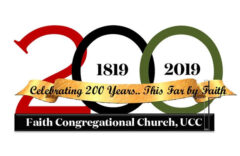New York City might be a liberal hub, but that doesn’t mean white parents want their children going to school with black kids.
 Rebecca Klein Editor, HuffPost Education
Rebecca Klein Editor, HuffPost Education
New York City didn’t experience school desegregation in the 1960s and ‘70s like other metropolitan areas. Unlike in Little Rock, Arkansas, the National Guard was never brought in to make sure black students could safely enter an all-white school. Unlike closer hubs, like Boston, resistance to school desegregation never escalated to a citywide crisis. New York never saw a large-scale integration program, and it was never ordered by courts to make its schools more racially balanced. In historian Matthew F. Delmont’s new book, Why Busing Failed: Race, Media, and the National Resistance to School Desegregation, he explains how New York City drove the rhetoric and resistance that allowed school desegregation to falter nationwide. In the late 1950s, years before any serious action was taken to desegregate most schools, New York City parents created the language that would lead opposition to racially mixed schools. This language — which emphasizes the importance of neighborhood schools and opposition to citywide busing — remains the weapon of choice for communities who fight integrated schools today. Read more HERE.
11 total views , 1 views today
